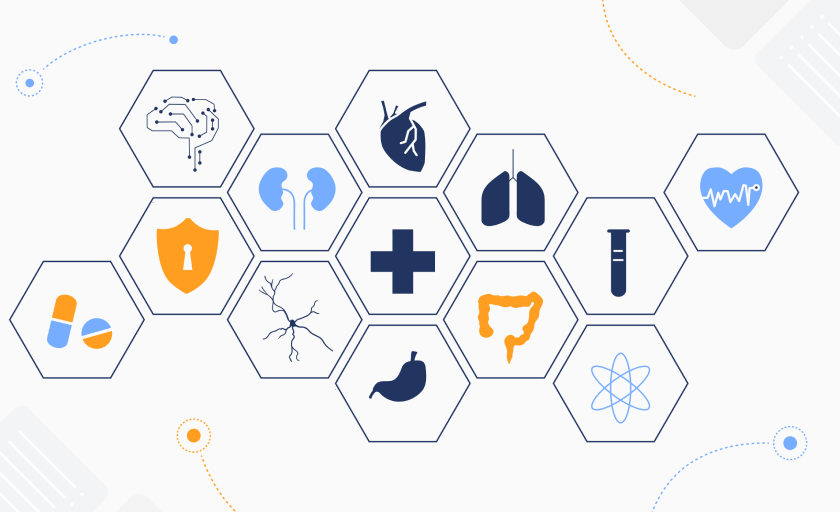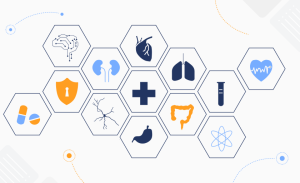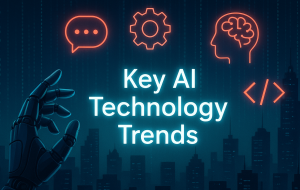💡 AI Use Cases: Real-World Applications of Artificial Intelligence in 2025

💡 AI Use Cases: Real-World Applications of Artificial Intelligence in 2025
Artificial Intelligence (AI) is no longer a futuristic concept — it’s already embedded in our daily lives, businesses, and global systems. From virtual assistants to predictive algorithms, AI use cases span nearly every industry. As the technology continues to evolve, understanding how AI is applied in the real world is crucial for entrepreneurs, professionals, and consumers alike.
This article explores the most impactful and innovative AI use cases in 2025, showcasing how machine learning, computer vision, natural language processing, and robotics are shaping the future.
🧠 What Are AI Use Cases?
An AI use case is a specific application of artificial intelligence to solve a real-world problem or improve a process. These use cases demonstrate AI’s practical value — from automating tasks and analyzing data to interacting with customers and predicting outcomes.
🔍 Top AI Use Cases by Industry
1. 💼 Business & Productivity
a. Customer Service Automation
AI chatbots and virtual assistants provide 24/7 support, reducing the need for large customer service teams. Tools like ChatGPT, Intercom, and Zendesk AI can:
-
Answer FAQs
-
Handle returns and complaints
-
Route complex issues to human agents
b. Email and Document Writing
Tools such as GrammarlyGO, Jasper, and Notion AI help write and optimize:
-
Emails
-
Business reports
-
Social media content
-
Meeting summaries
c. Meeting & Voice Transcription
AI can record, transcribe, and summarize meetings using tools like Otter.ai, Fireflies.ai, and Zoom AI Companion.

2. 🛒 E-Commerce
a. Product Recommendation Engines
AI analyzes user behavior to recommend personalized products, increasing conversion rates and customer satisfaction. Amazon, Shopify, and Netflix rely heavily on these systems.
b. Inventory and Supply Chain Optimization
AI predicts demand, optimizes inventory levels, and identifies supply chain risks using historical data and real-time analytics.
c. Visual Search & Image Tagging
Shoppers can upload photos to find similar products using AI-powered image recognition (e.g., Google Lens, Pinterest).
3. 🏥 Healthcare
a. Medical Imaging & Diagnostics
AI systems like Google DeepMind and IBM Watson Health analyze X-rays, MRIs, and CT scans to detect diseases such as cancer and pneumonia earlier and more accurately.
b. Predictive Analytics for Patient Care
Hospitals use AI to predict which patients are at risk of complications, hospital readmission, or medication side effects.
c. AI Chatbots for Mental Health
Apps like Woebot, Wysa, and Replika provide emotional support, cognitive behavioral therapy techniques, and journaling tools.
4. 🏦 Finance & Banking
a. Fraud Detection
AI models detect unusual transaction patterns to prevent fraud in real time — saving billions in losses.
b. Credit Scoring
AI evaluates alternative data (like payment behavior and browsing history) to assess credit risk for individuals with limited credit history.
c. Automated Trading
Hedge funds and investment firms use AI algorithms to analyze market trends and execute high-frequency trades at lightning speed.
5. 🚗 Automotive & Transportation
a. Self-Driving Technology
Companies like Tesla, Waymo, and Cruise use AI for lane detection, obstacle avoidance, and predictive decision-making in autonomous vehicles.
b. Traffic Management Systems
Cities are implementing AI-powered traffic lights and congestion prediction to reduce travel time and emissions.
c. Fleet Management
AI helps delivery companies optimize routes, monitor vehicle health, and predict maintenance needs (e.g., UPS, FedEx).
6. 🎓 Education
a. Personalized Learning Platforms
Platforms like Khan Academy, Duolingo, and Socratic use AI to tailor learning experiences to each student’s pace and style.
b. AI Tutors & Homework Help
Students can ask questions and receive step-by-step explanations using AI chatbots and virtual tutors.
c. Automated Grading & Feedback
AI tools help educators quickly grade assignments, detect plagiarism, and offer feedback.
7. 🏠 Smart Home & Personal Use
a. Virtual Assistants
AI tools like Alexa, Google Assistant, and Siri control smart devices, answer questions, set reminders, and manage daily tasks.
b. Home Security
AI cameras detect motion, recognize faces, and alert homeowners of unusual activity.



